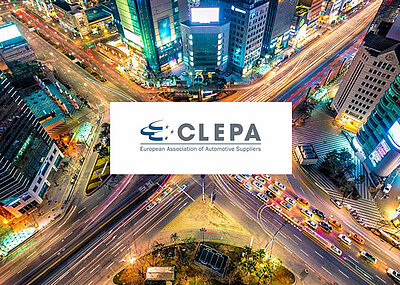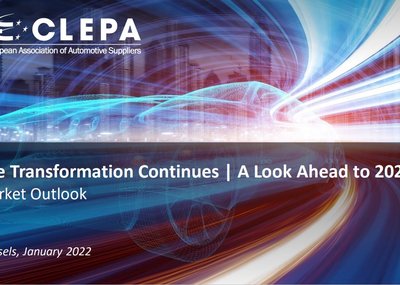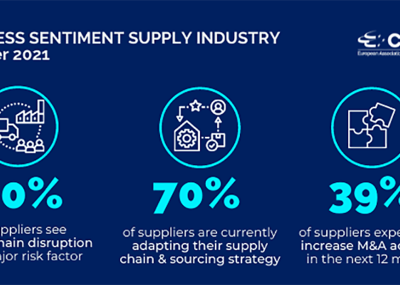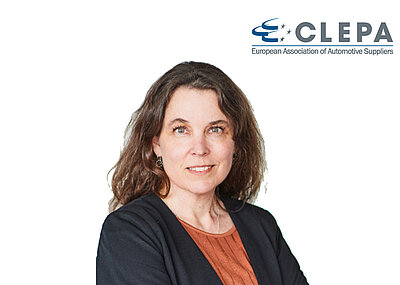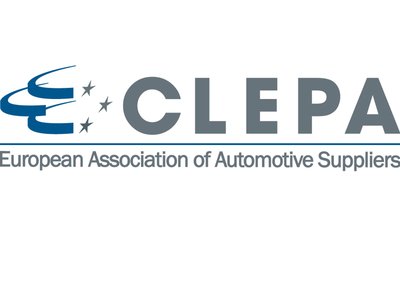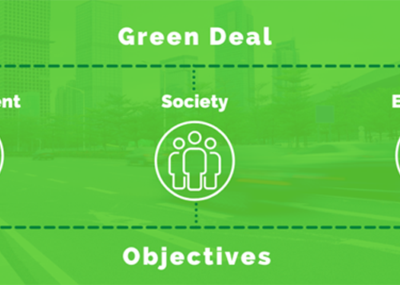CLEPA, the European Association of Automotive Suppliers, commissioned PwC Strategy& to assess the impact of three different Green Deal policy scenarios on employment and value-add among automotive suppliers across Europe in the period of 2020-2040. The scenarios represent a mixed technology approach, the current EV-only approach proposed in the Fit for 55 package, and a radical EV ramp-up scenario. All three scenarios assume accelerated electrification to meet climate goals, with a high market share for electric vehicles by 2030 of more than 50%, almost 80%, and close to 100%, respectively.
The automotive manufacturing sector is responsible for more than 5% of the overall manufacturing employment in 13 EU Member States, with more than 60% of these workers employed by automotive suppliers. The study therefore provides a much needed European-wide assessment and further identifies the risks and opportunities in seven major production countries for automotive components (Germany, Spain, France, Italy, Czechia, Poland, and Romania). The study is also the first of its kind in evaluating the impact of different policy pathways to reach Green Deal objectives with a focus on automotive suppliers.
While automakers have greater capacity to divest or insource activities to compensate for a loss of activity in the powertrain domain, automotive suppliers can react with much less agility, as they are bound by long-term contracts with vehicle manufacturers. In addition to global and well capitalised industry leaders, the sector consists of hundreds of specialised companies and SMEs with less access to capital to invest in the transformation of their business models.
Transition vs disruption
The study forecasts that in the EV-only scenario, 70% of the employment impact will be felt already in the period of 2030-2035 and substantiates that electric vehicle opportunities hinge on the establishment of a deep EU battery supply chain, the timing and likelihood of which are still uncertain. Western European countries appear best placed to be strongholds in EV powertrain production, while employment in Central Eastern European countries will remain highly dependent on the internal combustion engine.
Henning Rennert, Partner at PwC Strategy& Germany, stated:
“While electrification puts powertrain employment at risk on the one hand, other workforce skills around areas such as software or infrastructure will be needed in the future. The future value-add and job creation in powertrain technologies depends on local battery production in Europe.”
CLEPA Secretary General, Sigrid de Vries, stated:
“The study highlights the risks of an EV-only approach for the livelihood of hundreds of thousands of people working hard to deliver the technological solutions for sustainable mobility. As automotive suppliers are responsible for most of the manufacturing employment in the automotive industry, it is critical that we put jobs with automotive suppliers front and center when managing the social and economic impact of the transformation. Innovations by automotive suppliers have made electric mobility increasingly accessible for consumers and an essential instrument to meet emission reduction targets. But society’s needs are far too diverse for a one-fits-all approach. A regulatory framework that is open to all available solutions, like the use of hybrid technologies, green hydrogen, and renewable sustainable fuels will enable innovation as we redefine mobility in the coming decades.”
An uncertain future for batteries
The study substantiates that up to 70 billion euros (70%) of the value creation related to electric powertrains will be connected to the processing of battery materials, the production of battery cells and cells modules, and the assembly of battery systems. It is important to highlight that these activities will not necessarily be with the same companies or in the same regions, as they require significantly different skills and expertise compared to conventional powertrain technology and are therefore unlikely to provide opportunities to most powertrain oriented automotive suppliers, in particular small and medium sized enterprises who employ around 20% of people working in the automotive supply industry. Earlier research by CLEPA illustrated that battery production provides relatively more jobs for academically schooled employees and less for the mechanical workers that are now producing parts related to the internal combustion engine.
Methodology
The study´s methodology is complementary to previous studies, (available through CLEPA’s employment portal) as it models figures from a company perspective. Data was gathered with the support of CLEPA, national associations and companies in an explorative survey based on 199 questionnaires and validated with 33 expert interviews. To realistically model commercial decisions, production capacities at labour shift level (typically three eight-hour blocks) as well as country attractiveness, criteria have been assessed to develop wind-down scenarios for ICE vehicle technologies and ramp-up scenarios for EV technologies.
CLEPA’s policy recommendations
The current Fit-for-55 proposal for CO2 emission standards for cars and vans look only at the emissions coming from the vehicle’s tailpipe, ignoring emissions related to the production of vehicles or the fuels they use, including how electricity is generated. To incentivise technologies with the lowest overall carbon footprint, emissions from vehicles should ideally be regulated on life-cycle basis, with a Well-to-Wheel (WtW) approach as a first step, which considers the production and distribution of the fuel/electricity used to power a vehicle. Emission reductions on the fuels/energy production side should be recognised when determining compliance with CO2 standards, for example through the introduction of a voluntary crediting mechanism, which enables an additional option for automakers to fulfill the fleet-wide targets with additional volumes of renewable fuels.
Technology openness gives industry the needed time to transition, while mitigating the social disruption often coupled with abrupt change, without compromising on climate. A planned and thoughtful transition consisting of a mixed technology approach keeps options open to adjust to new developments, be they technological breakthroughs, geopolitical events, or availability of resources, and at the same time, presents significant value creation opportunities in the automotive industry, one of Europe’s biggest industrial assets.
Sigrid de Vries goes on to say “A technology open approach should include rapid electrification with clean and renewable energy, complemented by clean combustion technology with sustainable renewable fuels. There are more options than tailpipe-zero emissions, and we need to recognise the role that climate-neutral fuels can play in reducing emissions, preserving consumer choice, affordability and towards maintaining Europe’s global competitiveness. Technology is not the enemy here but rather fossil fuels, and tech openness will be critical to deliver a just transition.”


